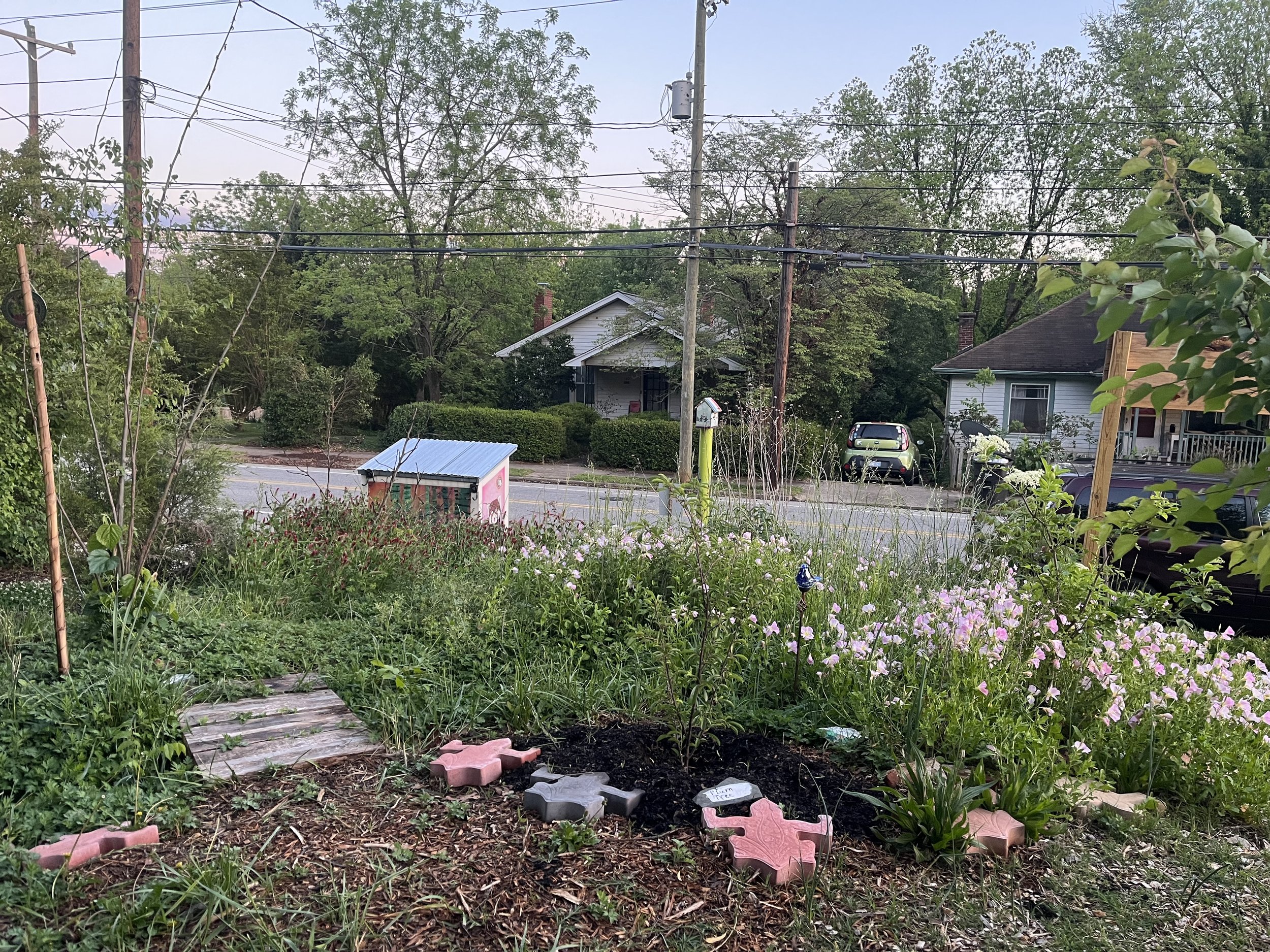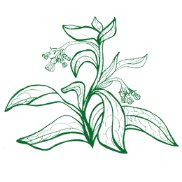
Our Mission is Activating & Engaging community intergenerationally through food forests, permaculture education & the Arts to co-create sustainable solutions to food deserts.

Our Vision is to have low maintenance food forests in every food desert.
per·ma·cul·ture
n. - the development of agricultural ecosystems intended to be sustainable and self-sufficient.
Beyond 'Human-centered' Permaculture is a living system for ethical land use infused with indigenous land wisdoms + techniques. Permaculture works with nature to support bio-diverse, resilient ecosystems.
A 'Permanent Agriculture' Permaculture integrates native plants + perennials that return + appreciate each year.
Permaculture is an agricultural design approach where communities work with biomimicry, nature & the health of living soil for the long-term benefit of the entire ecosystem which includes individuals & the community.
At an individual level, food forests or small gardens can be planted to reduce your grocery bill. Rainwater washing off your roof can be collected & purified for use in the home or for the garden. These are examples of small design strategies you can do that will support your community to be more sustainable, close-knit & resilient.
At the community level, consider your very street - the grass patch you walk past to get to your home is required by the city to be mowed below 6 inches. Instead, what if we planted natives, pollinators, bushes or small trees that provide soil, air + water filtration, habitat for wildlife, as well as nutrition for the community & shade to keep the street cool in the summer?
What if the cities implemented separated bike lanes to calm traffic, quieting the noise from vehicles & encouraging more healthy lifestyles?
All of this and more can be done to make our communities safer, more sustainable, resilient, & beautiful.
What is The Southside food forest?
The Southside Food Forest is a United Nations recognized permaculture model that activates 10 of the 17 UN Sustainable Development Goals:
SDG 2: Zero Hunger
SDG 3: Good Health & Well-Being
SDG 4: Quality Education
SDG 5: Gender Equality
SDG 9: Industry, Innovation & Infrastructure
SDG 10: Reduced Inequalities
SDG 11: Sustainable Cities & Communities
SDG 12: Responsible Consumption & Production
SDG 13: Climate Action
SDG 15: Life on Land
SDG 17: Partnerships for the Goals
Arts empowered, youth led, & community driven, the Southside Food Forest restores biodiversity by over 1000% with permaculture, native plants, perennials, herbs, vines, trees & shrubs to produce food, medicine, & other eco-cultural benefits. At the same time, it supports the complex ecosystem chains we rely on for energy, wellness & nutrition.
@southsidefoodforestwsnc is “rain-fed” & low maintenance, making this a great model to support the nutrition & bio-resiliency of local food deserted communities with little downside.
Forests have 7 "layers": canopy trees (30ft+), understory trees (10-30ft), shrubs (10ft-), herbaceous perennials, ground covers, vines, & underground plants. In food forests, each one of these layers can produce food or medicine for the ecosystem, humans, improve the soil, & provide food for important animals such as bees or birds.
This is something you can bring to your community & do where you are or with community garden!
What is creative Placemaking?
Creative Placemaking is a collaborative process that uses arts & cultural activities to improve the physical & social character of a community. Placemaking can address everything from Public Health, Safety, Economic Development, Environmental Sustainability & Housing. Creative Placemaking increases vibrancy, builds social connections, strengthens communities, creating a sense of place, identity, & instilling civic pride.
The Creative Placemaking process will look different in every neighborhood based on the challenges, inputs & needs the art means to address, but projects can include:
Murals
Street Painting & Carnivals
Busker Musicians
Public Art Sculptures
Public Seating
Repurposing Unused Space for Businesses
Space Creation for Recreation & Sports


